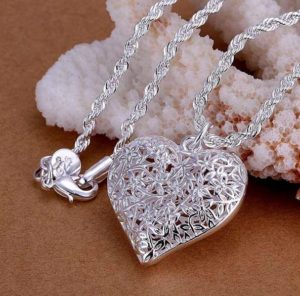 While explaining the purpose of marriage:
While explaining the purpose of marriage:
{وَمِنْ آيَاتِهِ أَنْ خَلَقَ لَكُمْ مِنْ أَنْفُسِكُمْ أَزْوَاجًا لِتَسْكُنُوا إِلَيْهَا
وَجَعَلَ بَيْنَكُمْ مَوَدَّةً وَرَحْمَةً إِنَّ فِي ذَلِكَ لَآيَاتٍ لِقَوْمٍ يَتَفَكَّرُونَ} [الروم: 21]
…And from his signs is that he created for you from yourselves a pair so that you may find solace with her; and He made between you love and mercy.
Indeed in that are signs for those who ponder… (Qur’ān 30:21)
Comfort and contentment is the primary purpose of marriage, and other aspects are offshoots from it.
وَجَعَلَ بَيْنَكُمْ مَوَدَّةً وَرَحْمَةً
“And he created between you love and mercy”.
This is from the evidences of fate that two individuals, completely strangers a moments ago, start to love each other at another level. One cannot find its similitude in anything else. This is why Allah Ta‘ālā did not describe it with a commanding conjugation saying that you two should increase love and caring in between yourselves. Instead, Allah used the conjugation of informing that a special bond has been established between yourselves, and that We have aided you. Without this aid, while being strangers you would not have reached this level of love.
Moreover, two words of “love” and “mercy” have been chosen. This shows that in this relationship, sometimes love will overpower while at other times mercy and care will shine its colours. Hence in the beginning “love” overshadows in a marriage and by the end it is overtaken by “mercy and care”.
Under the same tone, a common complaint from women is also addressed. Usually, after a few years the wife normally complains that the husband does not have the same kind of love for her in his heart, and that now the vigour and excitement is no longer the same. This is due to unawareness of the matters, and if the husband becomes silenced with such a complaint, then he is no more aware of reality than her.
 An intellectual understand this complaint and can respond effectively. The principle is that after initial reaction the excitement/vigour subsides. However, this decrease in vigour is not an evidence for decrease in love, rather perfection thereof. The vigour itself is a sign of deficiency. Notice that as long as the food has vigour in the cooking pot, the food is uncooked. Once the vigour subsides, then the cook knows that the food is now cooked.
An intellectual understand this complaint and can respond effectively. The principle is that after initial reaction the excitement/vigour subsides. However, this decrease in vigour is not an evidence for decrease in love, rather perfection thereof. The vigour itself is a sign of deficiency. Notice that as long as the food has vigour in the cooking pot, the food is uncooked. Once the vigour subsides, then the cook knows that the food is now cooked.
This is also the reason anbiyā’ and awliyā’ have very less vigour about their kayfiyāt (feelings), while the intermediate salikīn have slightly more vigour and the novices are all about kayfiyāt. Yet, everyone knows that anbiyā’ are perfect, and hence their muhabbah (love) is also perfect, even though it is void of much vigour.
Therefore, women should understand that if through the journey of marital life, the vigour has gone down in the man then this is not a sufficient evidence of decrease in love. Instead, it is a sign of maturing of love and hence it has changed its colours. Where it was all about intimacy and passion before, now it has acquired the maturity of mercy and caring for the other. Before it was love, but with a somewhat hindrance and strangeness attach to it, and now it has outgrown into frankness and sharing of deeper secrets of the other. Joined in the other’s tears and pain. As though two hearts have finally amalgamated into one.
This is a delicate academic point in adopting the words “love” and “mercy” in the verse, in that order.
Jawāhirāt al-Hakīm al-Ummat , Pg 334.